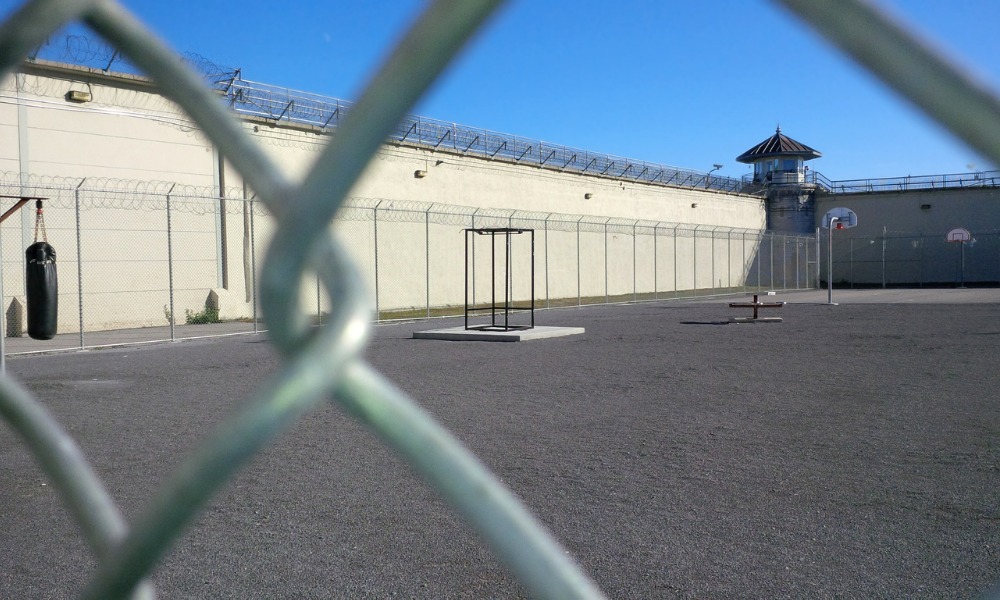
Roundup includes DLA Piper, Gowling WLG, Osler Hoskin & Harcourt LLP in IP cases

Acheson Sweeney Foley Sahota LLP and Grace Snowdown & Terepocki LLP were present in the Federal Court this week to represent the parties in lawsuits filed against the Correctional Services of Canada (CSC). The Federal Court also heard actions involving aboriginal law, intellectual property, and immigration.
Abel Araya, a Sudanese-Canadian former inmate at William Head Institute in Metchosin, filed a proposed class action against the federal government. Araya initiated the suit to address systemic racism allegedly committed by the Correctional Service of Canada. He claimed that despite being a non-violent, first-time offender, as a black inmate, he was treated as if he was an unpredictable and violent threat to the institution’s security. Acheson Sweeney Foley Sahota LLP represented Abel Araya in court.
Grace Snowdown & Terepocki LLP represented Donald Dundell, a federal inmate incarcerated at Bowdon Institution in Alberta, where the CSC operates. Dundell claimed that he was assaulted by fellow inmates in Bowdown, resulting in physical and psychological injuries. He filed an action against the Crown and the CSC for allegedly failing to take reasonable steps to protect him from the assault.
Hameed Law represented 96 healthcare practitioners who challenged the Minister of Health’s refusal to grant their requests to possess and consume psilocybin, a drug used in psychotherapy. The practitioners argued that there is an “overwhelming need” for psilocybin-assisted psychotherapy, but very few healthcare practitioners in Canada are trained in administering this kind of psychotherapy. They further contended that the 19 exemptions to possess and consume psilocybin granted by the Minister in 2020 were insufficient to train enough healthcare practitioners to meet the patients’ needs. They brought the matter to the federal court, seeking an order directing the Minister of Health to grant the 96 requested additional exemptions.
The Ontario-based company, Windsun Energy Corp., filed a lawsuit against the Cat Lake First Nation, claiming a consulting fee of $1,280,000 and general damages of $1,800,000 for breach of contract. The indigenous community contracted with Windsun to solve the mould problem in the community’s housing which was seriously affecting the health of the indigenous people. Larson Lawyers Professional Corporation represented Windsun, while the Law Offices of Edwards Bell acted for Cat Lake First Nation.
Davis LLP acted for the descendants of the Paul Cree Band in an action seeking the return of their reserve lands of the Clearwater Indian Reserve No. 175, which was allegedly wrongfully taken from them. They also claimed damages for $25,000,000 for the invalid surrender of petroleum and natural gas and mines in the Clearwater Reserve.
In lawsuits involving intellectual property, some of the notable law firms in court this week include DLA Piper for Videotron Ltd., Ridout & Maybee LLP for Vanpak Limited, Norton Rose Fulbright LLP for Valley Blades Ltd., Gowling WLG for Novartis Pharmaceuticals Canada Inc., and Osler Hoskin & Harcourt LLP for Teva Canada Limited.
In immigration and refugee law, the law firms present in court this week include Ogayemi Law Firm, Mithoowani Waldman Immigration, Jared Will and Associates, Lewis and Associates, Paul Briggs Law, and Citylaw Group.
In an action between the Public Service Alliance of Canada and the federal government, a Federal Public Sector Labour Relations and Employment Board panel dismissed applications to exclude five positions from a bargaining unit. The employer argued that the positions should be excluded because the duties of these positions include providing advice on occupational health and safety matters, which created a conflict of interest between the positions and the bargaining units.
The Board ultimately ruled that the positions should not be excluded because occupational health and safety is a bipartisan obligation that does not presuppose a conflict of interest based on membership to a group. The matter was eventually brought to the Federal Court of Appeal. Raven Law represented the Public Service Alliance of Canada in court.